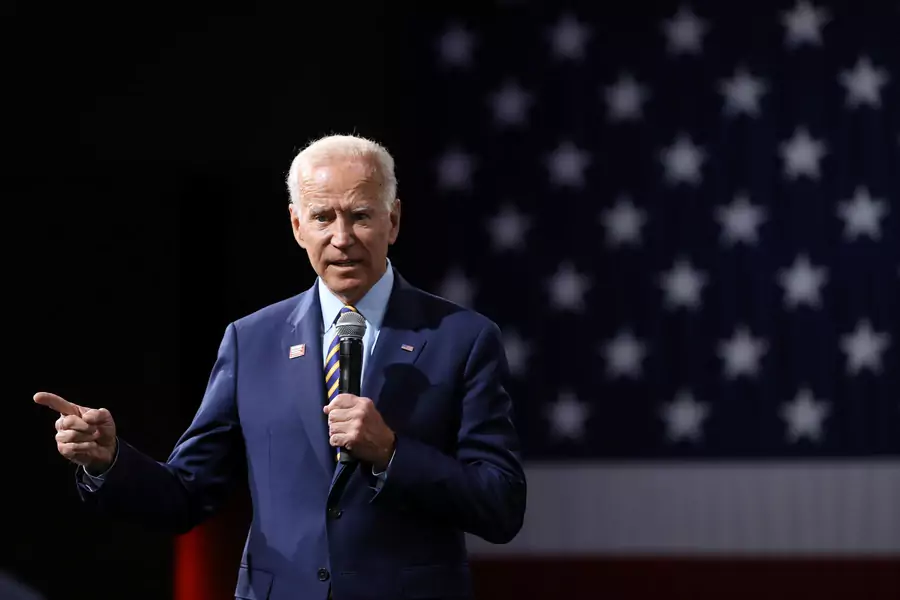Call it the Addiction Defense Strategy.
Hunter Biden’s history of drug abuse, causing years of heartache and embarrassing disclosures, could form part of his defence against nine tax charges which carry maximum prison terms of 17 years, according to legal experts.
On March 28, California federal prosecutors filed three felony and six misdemeanour tax charges against Beau Biden, his son. Prosecutors allege he failed to pay at least $1.4 million of taxes when due while also spending lavishly, engaging in tax avoidance schemes, and living an extravagant lifestyle.
Hunter Biden, who has become the subject of a Republican Presidential Impeachment Investigation, spent most of his money “on drugs, escorts and girlfriends, luxury hotels and rental properties, exotic cars, clothing, personal accessories and anything but paying his taxes,” according to an indictment filed against him.
Federal prosecutors offered Hunter Biden an agreement in April to plead guilty to two tax misdemeanours and potentially avoid jail time on both tax charges as well as separate gun allegations. Still, that agreement fell through because Hunter disagreed with its protection of him against future allegations, while an outraged judge did not instantly rubberstamp it.
Hunter must now hire lawyers to devise defence strategies as his client defends against not only serious tax charges in California but also 25-year felony gun charges in Delaware – to which he pled not guilty last October.
Asked by USA TODAY to comment on this story, a spokesperson for Abbe Lowell directed USA TODAY back to a statement released shortly after his indictment was filed, stating his client has now paid their taxes in full while questioning why charges had been filed in the first place.
“Based on facts and law, had Hunter not had a last name other than Biden, no charges would have been brought in Delaware or now California against her,” Lowell indicated.
Federal tax crimes can be challenging to prove as they often require showing that the defendant’s conduct involved an exceptionally high degree of willfulness: tax violations like those against Hunter would only qualify as federal crimes if the government could show they knew about their legal duties and breached them knowingly and deliberately.
Hunter faces three felonies related to 2018, tax evasion and filing false returns being the primary ones. Biden recounted instances during that year when day ran into the night and vice versa as he compulsively used crack cocaine in his 2021 memoir Beautiful Things.
After collapsing for several minutes and recovering enough to come to, the first question I’d pose would be, ‘Where’s my pipe?”,” wrote Hearon.
Hunter’s defence team may point out that Biden had significant substance abuse problems from 2016-20 when the indictment is concerned, which may have impaired his awareness and intent of tax laws he violated intentionally.
Tino Lisella, an attorney who worked at the Justice Department to prosecute tax crimes for nearly ten years as part of his career, believes substance abuse plays a big part in undercutting one’s intentions and trying to defeat one’s goals.
Notes included with the indictment suggest prosecutors anticipate this defence: it indicates Hunter had become sober by 2020 and filed his outstanding 2016-18 personal tax returns during that year but “did not direct any payments toward his tax liabilities for each of those years,” while continuing to spend lavishly in Venice Beach and purchasing Porsche automobiles.
But Hunter’s attorneys could still argue that, when it comes to 2018 tax evasion and filing false returns charges, his understanding was obscured due to drug use at that time, even though he was clean by 2020 when filing his return.
Lisella expected Abbe Lowell would respond accordingly: ‘Yeah, but you are asking about expenses related to when he wasn’t sober.’
Hunter’s failed plea agreement documents reveal that in 2021, he received assistance from a third party in paying his back taxes due to misdemeanour charges against him.
Experts predict Hunter may argue the charges constitute “selective prosecution”, an umbrella term for discriminatory prosecutions that violate constitutionality. His lawyers have already indicated they plan on exploring this legal argument when handling his gun case.
According to David Sklansky, an esteemed Stanford Law Professor and former federal prosecutor, proving unconstitutional or selective prosecution may prove challenging.
Michelle Abroms Levin, a tax attorney and former Justice Department trial attorney, suggested prosecutors might target high-profile individuals to deter lawbreaking while inspiring more public trust in our tax system.
Political targeting aside, taking someone’s fame and potential deterrence factor into consideration when selecting cases against someone does not implicate selective prosecution defence, according to Sklansky.
Levin provided examples of other high-profile individuals facing serious tax allegations, including reality TV stars Todd and Julie Chrisley of reality show fame, who each were sentenced to years behind bars after being found guilty of bank fraud, tax evasion and conspiring against banks out of millions in proceeds from transactions they purported to defraud.
Josh Ungerman, an ex-IRS and Justice Department lawyer, said there have been other instances involving wealthy individuals living lavishly while failing to pay their taxes but only facing civil repercussions such as penalties or interest charges as punishment – yet still managed to escape legal consequences as deterrence remains central in tax systems worldwide.
“They want people talking around you saying: ‘Look what happened to the president’s son; now it is your turn!,'” he explained.
Tax evasion and false return felony charges in 2018 go beyond instances in which taxpayers legitimately reported taxes but failed to make payments timely; instead, prosecutors allege Hunter intentionally misreported them by falsely classifying wages that he’d provided women he was dating or involved with sexually as income for taxes purposes.
Examined together is also its peculiar unfolding, including why charges were filed. Two IRS whistleblowers testified before Congress last July about how Justice had delayed and hindered Delaware U.S. Attorney David Weiss in conducting his years-long investigation of these incidents.
Weiss has stated to a congressional committee: “[N]ever was I prevented, blocked or prevented in taking steps necessary in my investigation. ”
Later that July, Hunter’s plea deal failed in Delaware federal court; consequently, Attorney General Merrick Garland appointed Weiss as special counsel in August to give more independence to her investigation; in September and December, she filed both gun- and tax charges against Hunter.
Hunter’s attorney, Lowell, has expressed concerns over this apparent shift in prosecutorial strategies.
Lowell told MSNBC during an interview, when asked by its anchor about mounting charges against himself: “People need to ask themselves this simple question: ‘What has changed between June and December other than Republican political pressure?
Thieves, junkies, petty dealers and over-the-hill strippers: Is There Evidence Against Hunter? Hunter has been charged with several egregious violations during his tax indictment proceedings, including various allegations regarding his behaviour, specifically related to his memoir.
Prosecutors allege Hunter filed false deduction claims in 2018 for money he spent on luxury clothes, escorts and dancers, as well as his $10,000 payment to join a sex club membership.
Prosecutors point out from his memoir that, for months in 2018, Hunter allowed an assortment of thieves, junkies, petty dealers, over-the-hill strippers, con artists and assorted hangers-on to congregate around him; those associated with them invited their friends, associates and most recent hookups – providing evidence he wasn’t conducting business or incurring tax-deductible expenses as claimed.
Lisella predicted the government would attempt to present evidence showing Hunter was spending his funds illegally or unethically; Hunter’s attorneys may object, saying such evidence might unfairly prejudice a jury trial.
“You cannot predict how a judge is going to rule; however, it could be that much of what the government alleges or some portion thereof remains hidden from jurors,” Lisella stated. This could impact how proceedings unfold and lead to their verdict being rendered.
Hunter and her legal team may attack prosecution accusations about taxes when dealing with more serious allegations such as tax evasion or false return allegations.
Lowell provided USA TODAY with an apparent letter that Lowell sent in September to the Republican chair of a congressional committee that heard IRS whistleblower testimony, in which she asserts that Hunter underreported his 2018 taxes in error.
Prosecutors must show there are taxes “due and payable,” per Justice Department guidance, to secure a conviction on tax evasion charges specifically.
“Upon the final review and development of facts impacting Mr. Biden’s 2018 tax year, it appears Mr. Biden may be eligible for a refund,” Lowell wrote in his letter to Biden.

